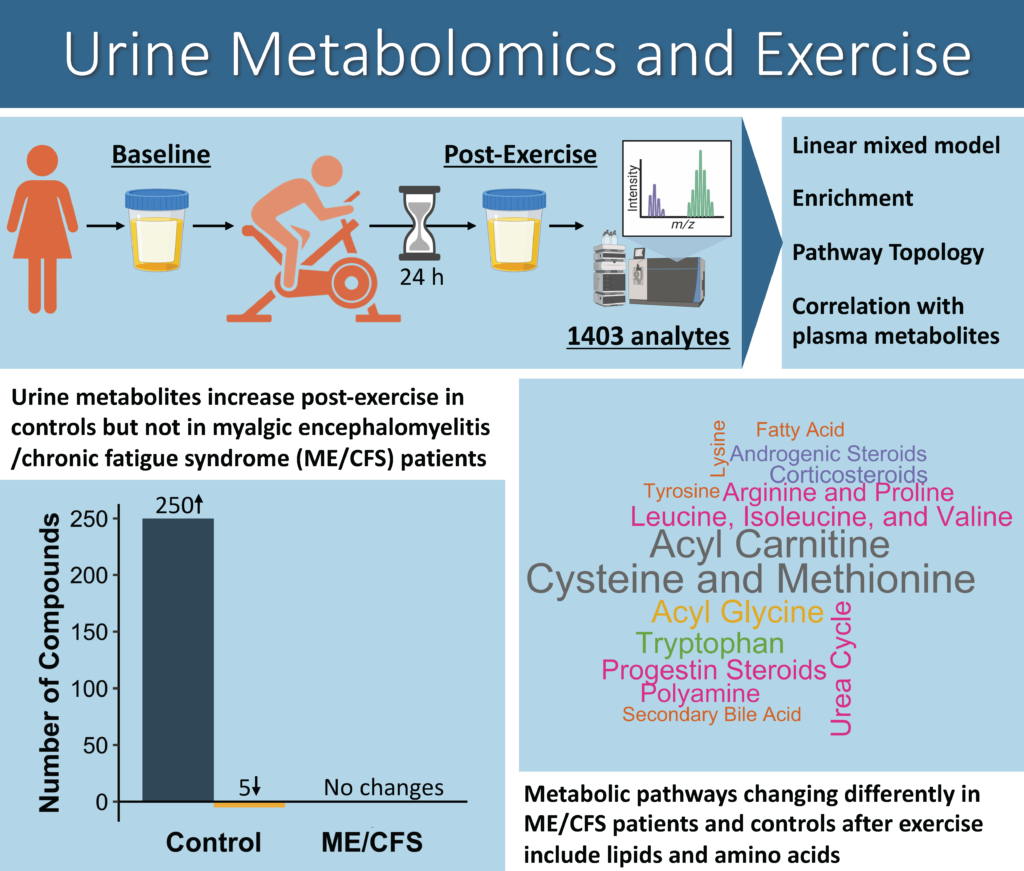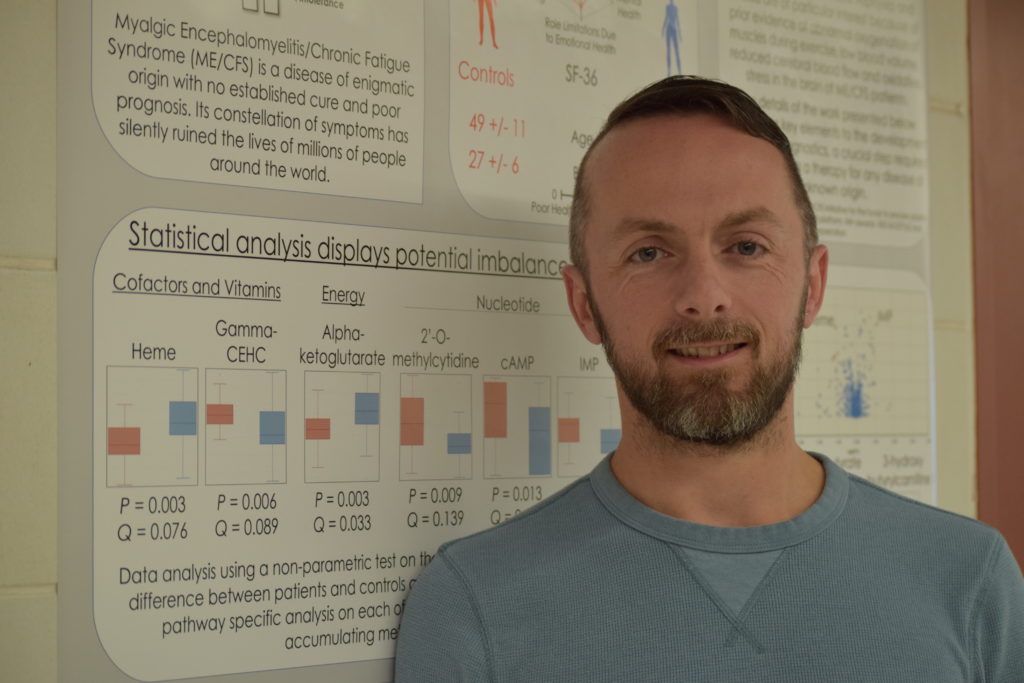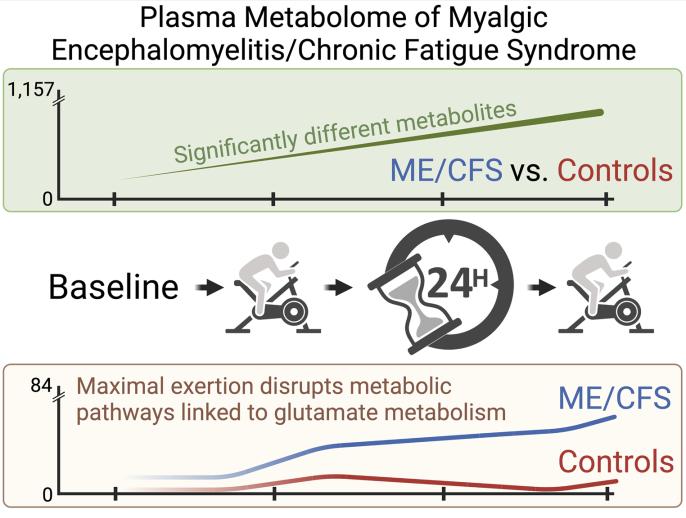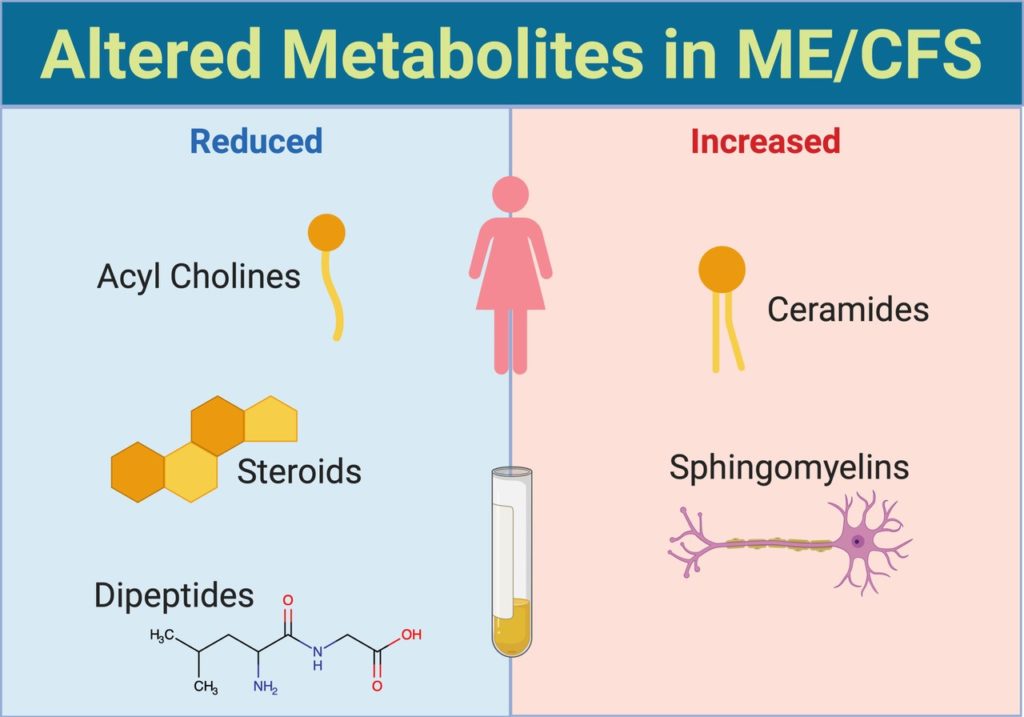
We have a new study published today that compares metabolite levels in urine of ME/CFS patients and sedentary controls before and after cardiopulmonary exercise testing (CPET).
Katie Glass is lead author of Urine Metabolomics Exposes Anomalous Recovery after Maximal Exertion in Female ME/CFS Patients. The study is available online in the International Journal of Molecular Sciences and full text is open access.

As shown in the graphical abstract above and explained in the video abstract below, we found a large number of metabolites at increased concentrations in the urine of controls 24 hours after CPET compared to baseline. However, we did not find significant changes in levels of any metabolites in the urine of ME/CFS patients after CPET.
When we looked at which metabolites were changing differently in ME/CFS patients and controls after exercise, we found the most compounds in the amino acid and lipid metabolic superpathways.
Overall, our data suggests that the metabolisms of sedentary controls undergo major changes that allow them to recover from exertion, while ME/CFS patients fail to make similar adaptive responses. This dysfunctional metabolic excretion could be contributing to exercise intolerance in ME/CFS patients.
Check out the paper to see many more results, including individual compounds that are significantly different between patients and controls and altered correlations between urine and plasma metabolites.
 Center for Enervating NeuroImmune Disease
Center for Enervating NeuroImmune Disease



